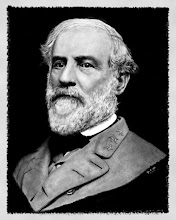In Matthew chapter 15, we find the direct contrast between the Pharisee and the lover of God. The Pharisees loved commands, both those of man and those of God. They looked to the law for their righteousness and believed that external obedience to this mixture of law and tradition was equivalent to the worship of God. Yet Christ showed that this was not worship for by it they not only made void the commands of God, but it showed that they loved their tradition and not God.
The true believer views Christ, and not tradition or law, as the source of his righteousness. Therefore, he does not equate law keeping as worship. Rather, his worship and love of God produces obedience. Obedience simply flows from the focus on God. The believer then will not seek to make void the commands of the one from whom he draws his righteousness and life.
Because the Christian is drawing his righteousness from Christ, he recognizes that in and of himself he is not righteous. He does not contribute in any way to his righteous standing before God. In every area of obedience, he must view himself as an unprofitable servent because he has only done that which he was commanded. The Christian then realizes that his place and standing is only the result of God's mercy and grace. This understanding results in mercy and grace being shown to those who are around him. The Pharisees knew nothing of mercy and grace for their righteousness came from their own work, and not from Christ. They exalted the law as the source of righteousness and as the law showed no mercy, they could show no mercy.
My friend, upon which side do you fall? Do you condemn a man because he violates the traditions of man? Do you know nothing of mercy and grace and then show no mercy? Mercy rejoices against judgment and those who show no mercy will receive no mercy
The Sufficiency of Scripture Conference
15 years ago













+copy.jpg)




No comments:
Post a Comment